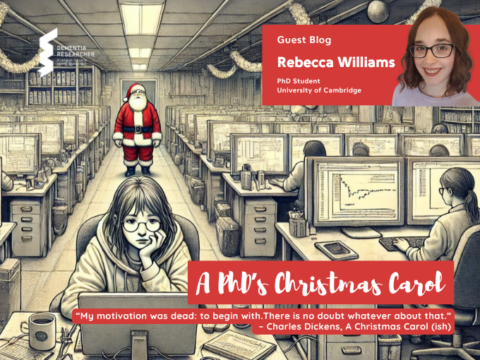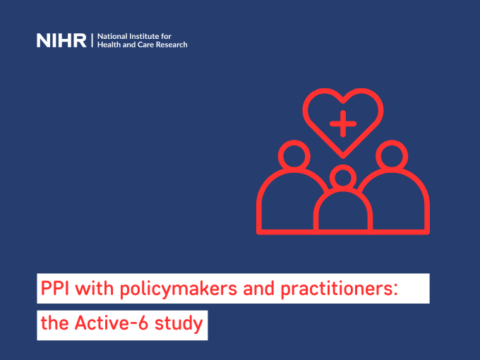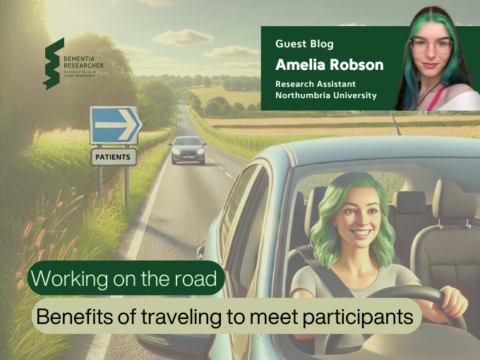Early morning, it’s typical British English weather (raining cats and dogs), and I’m up for our second NIHR CLAHRC NWC public workshop in Wigan last week. Over the past month, we’ve held two workshops to share the findings from our recent memory clinic evaluation in the North West of England, but also, and probably most importantly, to have those living with young onset dementia (YOD), their families, and care professionals help shape post-diagnostic support in the region.
Of the 850,000 people estimated to be living with dementia in the UK, 4-5 percent are living with YOD. Because they are a small, but very important, subgroup, maybe that’s why there are not that many services for YOD.
Our memory service evaluation showed that the support provided to people after a diagnosis is insufficient. Now this is being echoed by other research, and thanks to Wigan Council (voted most Dementia Friendly Town of the Year 2016), we were able to hold two workshops – one for care professionals, and one for people living with YOD and their families.
In the first workshop in May, 33 care professionals attended in the Town Hall in Wigan, a much bigger turnout than we expected. Amongst those were professionals from local day care centres, care homes, memory clinics, and consultants. We met a range of clinical professionals, from occupational therapists to speech and language therapists. By sharing our findings, and showcasing some of the work that Wigan Council and the local Alzheimer’s Society are doing for people with dementia, we gave the professionals some food for thought on how support for people with YOD and their families should look like in the community.
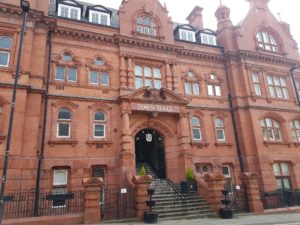 The first workshop for dementia care professionals took place in Wigan Town Hall
The first workshop for dementia care professionals took place in Wigan Town Hall
A lot of ideas were discussed – for example activities such as crazy golf and specific rare dementia support. But one thing that came out especially was that people with YOD should be enabled to attend any types of local activities and support groups without them being specifically only for people with YOD. Instead, if someone has an interest in horse riding or outdoor activities, they should be supported, maybe by a befriender, to attend those activities. So it’s about making local activity coordinators aware of possible needs of those living with YOD, to support them as best as possible. Considering that 40,000-42,000 people live with YOD in the country, and there may only be few people in any locality, it makes sense to improve open access and support to existing activities. This open up a much wider pool of activities, and truly helps those living with YOD continue being socially engaged and follow their own hobbies and interests.
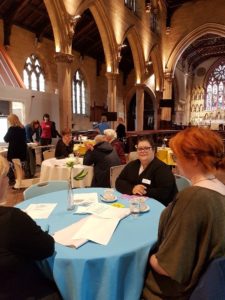 Workshop for people with YOD and families
Workshop for people with YOD and families
This was echoed in the workshop for those living with YOD and families. 12 people attended, including one person living with YOD. Family carers often mentioned that their loved one with YOD did not wish to talk even more about YOD, which is completely understandable. That’s why it’s so important to enable better access to non-dementia activities. But also, one thing that came up strongly in both workshops, was that there needs to be greater employer awareness about how dementia can affect someone in their 30s. At the workshop, I’ve met parents who are caring for their sons in their 50, and even in their 30s. Just because someone receives a diagnosis of dementia, that doesn’t mean they have to stop driving, stop socialising, or stop working right away. Every dementia, and every person, is different, and develops differently. Employment is something that does not really affect most people with late-onset dementia, as they are mostly retired – but it clearly is an important topic on those below the age of 65. So, employers need to consult with the person regularly, and enable them the best way possible to keep working. This might be supporting transport to the work place. Or maybe adjusting the job or workload slightly.
So what’s going to happen with this information? Wigan Council is going to have a look at these points raised, and – not that common for councils across England – luckily has some funding to put things into practice to support those with YOD and their families better. But Wigan is just one town in England, in the UK. There are thousands of other people with YOD who do not receive the support in the community they need. How can we help those? Maybe what we need is a national YOD campaign – people are much more aware of dementia now than 5 years ago – but do they know that it can affect people even in their 30s (or 20s)?
Author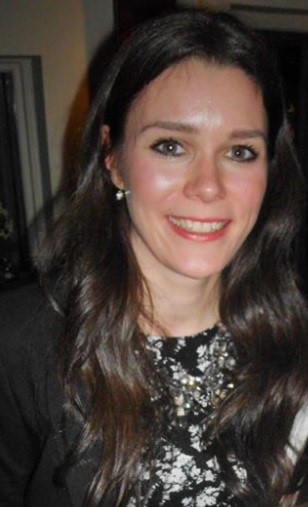
Dr Clarissa Giebel is a Postdoctoral Research Associate at the University of Liverpool and NIHR CLAHRC North West Coast. She has been working in dementia care research for over 7 years focusing her research on on helping people with dementia live at home independently for longer.
You can follow Clarissa on Twitter Follow @ClarissaGiebel

 Print This Post
Print This Post
